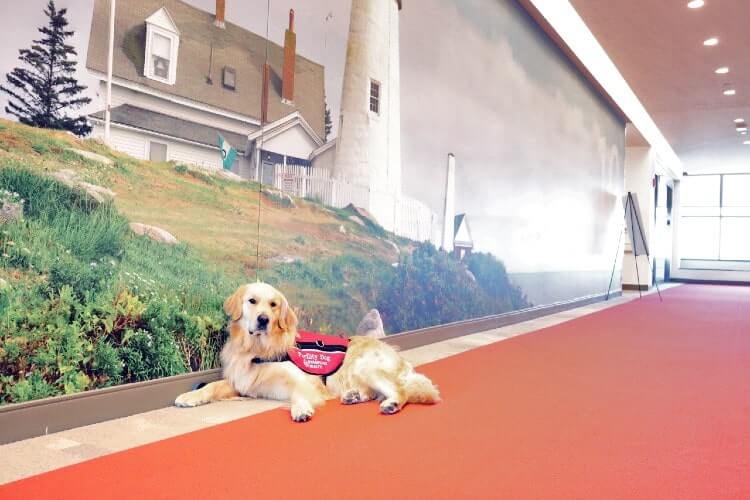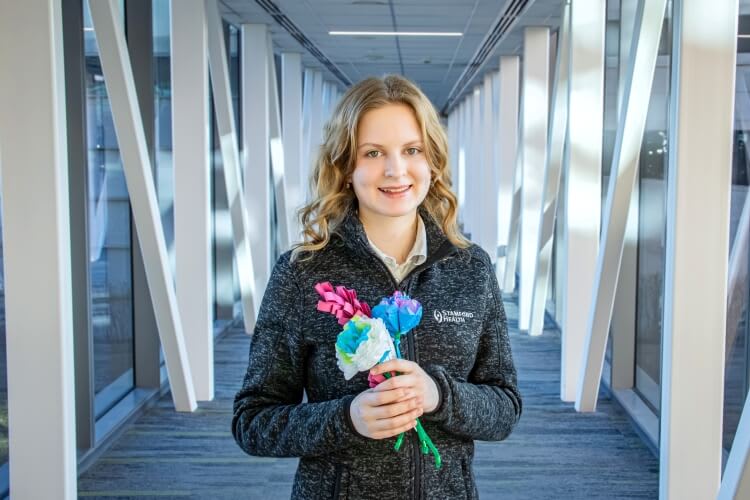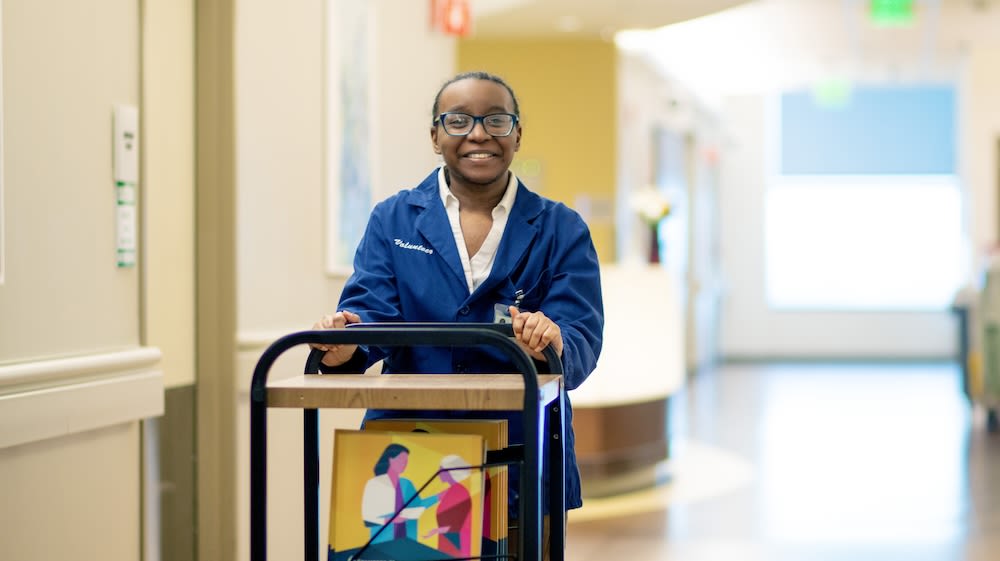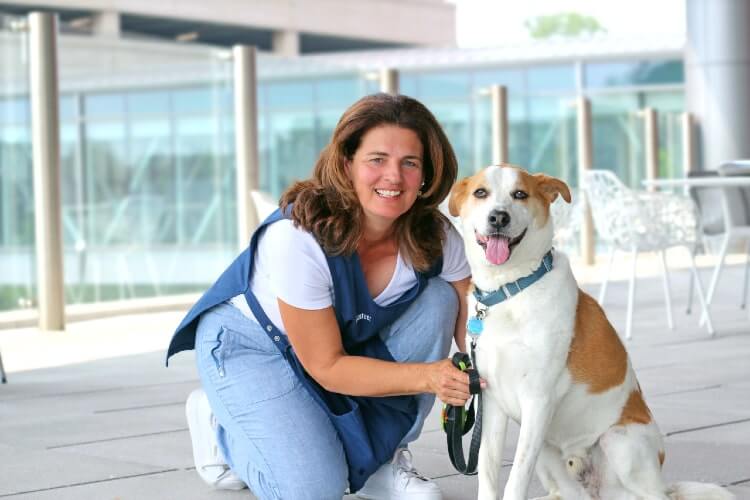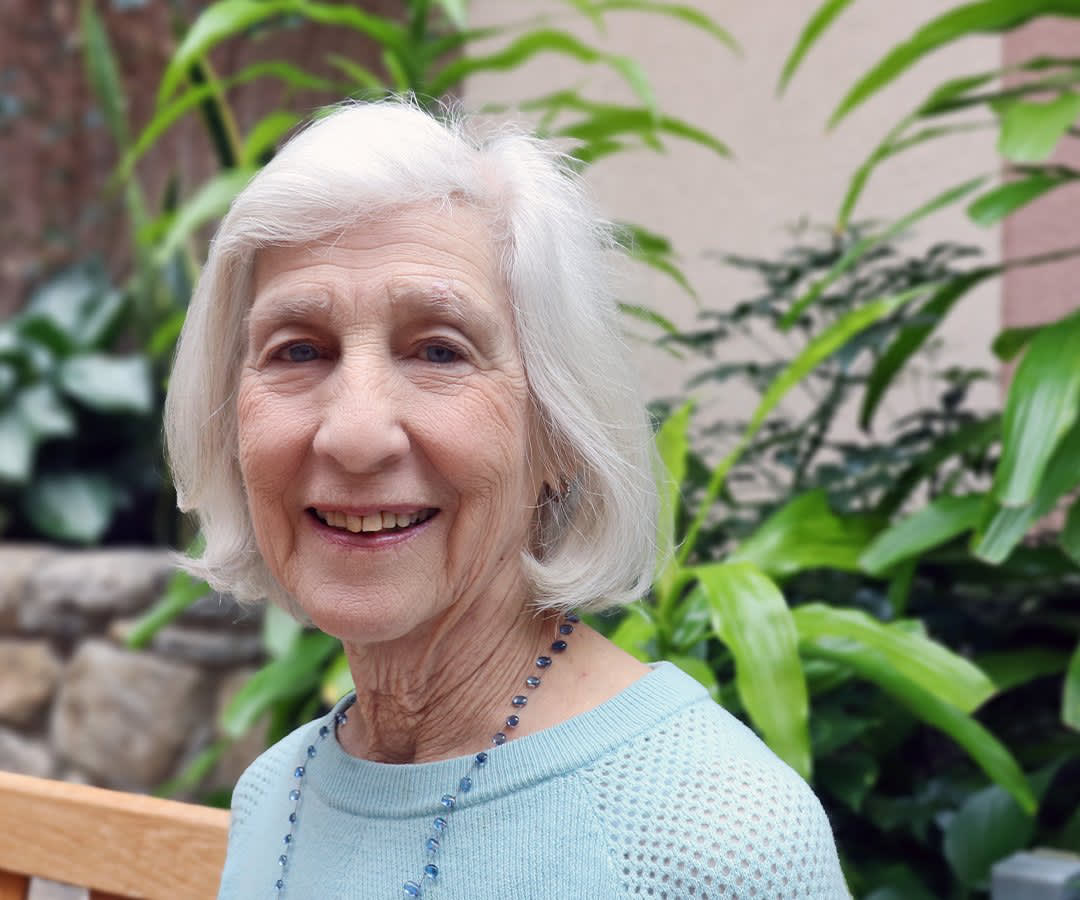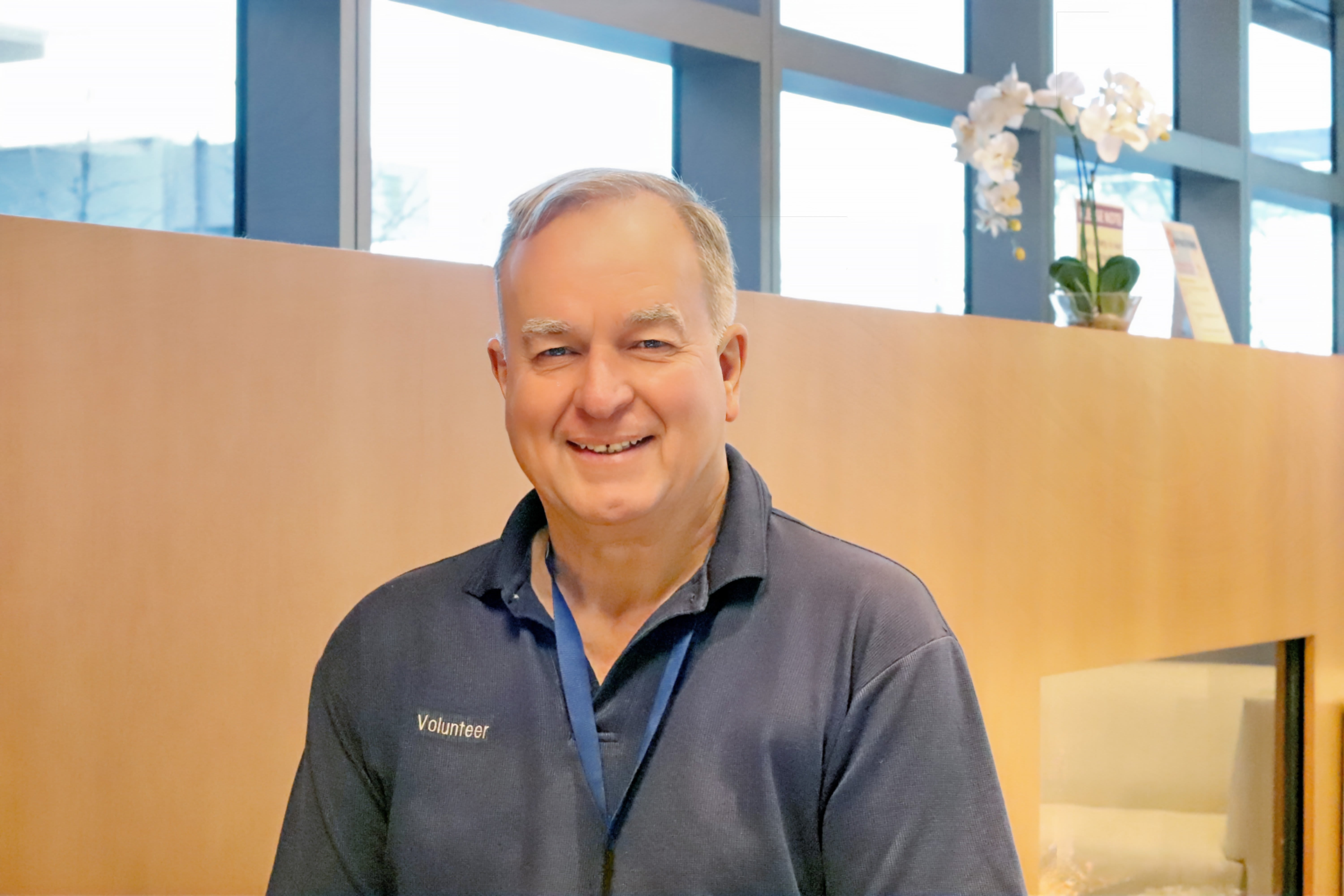Meet Harrison, Stamford Health’s new facility therapy dog!
By Cynthia Tanacea and Courtney StupakAt Stamford Health, our person-centered approach to care is front and center of everything we do – for our patients, visitors, and staff. Navigating health care and walking into a hospital for the first time can be stressful – and sometimes even scary. At Stamford Health, we’re here to provide comfort and support every step of the way and we’re always working to improve our services.
With this in mind, we would like to introduce you to Stamford Health’s newest employee, Harrison!
Harrison is a 27-month-old, 80-pound golden retriever and is the first full-time, facility therapy dog at the Hospital. Harrison is highly trained to respond to a multitude of commands and can perform many tasks to help calm and support pediatric and adult patients, as well as hospital staff.
Unlike the volunteer pet therapy dogs in our Healing Hounds program who distract and soothe patients with short-term visits, Harrison is a full-time working dog, and task-oriented member of our Planetree & Patient Experience team. The program’s operational costs for the first three years were entirely funded through philanthropy, thanks to donors of the Stamford Hospital Foundation. He has more than two years of extensive training under his collar and can respond to 53 cues to demonstrate skills to support patients and care partners throughout the hospital. Harrison will provide a focused level of support to departments throughout the health care system including (but not limited to) physical rehabilitation, behavioral health, emergency medicine, and pediatrics. We have recruited a number of handlers to support Harrison’s schedule while he is working, so that he may support our patients, their care partners, and our employees.
In pediatrics for example, if a child is too afraid to allow a doctor to put on a cast, then Harrison will demonstrate the ease of the process by allowing us to wrap a temporary bandage around his leg or forepaw. When fear prevents a child from taking a pill, we’ll have Harrison show how easy it is to swallow one (not actually human medicine of course!). He can model simulation of intravenous line insertion by pretending to accept a needle into one of his veins and he can also demonstrate breathing through a nebulizer mask. Harrison is always happy to accompany a child on a gurney ride to the X-ray room as well!
Harrison is a wonderful physical rehabilitation partner. He knows specific skills, like those needed for playing ring toss or rolling a ball back and forth with a patient, which help to improve muscle strength and flexibility, coordination, and functionality. He also knows when to gently nudge a patient whose balance is teetering, and he recognizes the specially marked button that he must press to open a door. If the physical rehabilitation staff identifies more tasks for Harrison to learn, all we have to do is give them to Harrison’s trainer, who will teach them to this very smart and cute pup!
Harrison offers emotional support, too. He helps our most vulnerable behavioral health patients communicate in ways that they often can’t with human beings. When patients are agitated, he will calm them by laying on top of their outstretched legs, like a weighted blanket. He gives the same kind of love to clinical staff who often need to decompress after experiencing traumatic events.
If you are a dog lover or have ever owned a dog, then you know how soothing it is to have one by your side — or on your lap! Harrison improves the patient experience and staff well-being because he connects with people in ways that other people may not.
We can’t over emphasize how much it means for patients who are missing their own dogs during long hospital stays to have Harrison to pet and hug. He reduces anxiety and brings joy wherever he goes. In these ways, he is an extension of Stamford Health’s person-centered care approach and proof that healing doesn’t always come in a pill. Sometimes it takes a cute pooch to make people feel better.
About the Authors
Courtney Stupak is the manager of Stamford Health’s volunteer & guest services.Cynthia Tanacea is a patient experience program administrator at Stamford Health.


